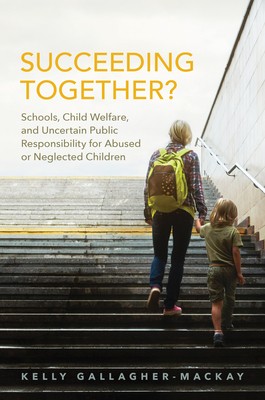
- We will send in 10–14 business days.
- Author: Kelly Gallagher-Mackay
- Publisher: University of Toronto Press
- ISBN-10: 1442650648
- ISBN-13: 9781442650640
- Format: 16 x 23.4 x 1.8 cm, hardcover
- Language: English
- SAVE -10% with code: EXTRA
Reviews
Description
Growing attention has focused on the education of children in the child welfare system, particularly those in foster care, but ninety-two percent of children in the child welfare system stay with their parents and their educational needs receive little attention.
Succeeding Together? is an institutional ethnography that analyses front-line accounts from mothers, teachers, and child welfare workers to explore the educational issues facing abused and neglected children outside of foster care. Kelly Gallagher-Mackay examines the complex policy framework and underlying assumptions that shape the practice of collective responsibility for this vulnerable group, shining a light on the implications of their status in-between private and public responsibility. Gallagher-Mackay breaks down collective responsibility into three areas: surveillance and the duty to report, child welfare s poorly defined responsibility to provide educational supports, and the privatized nature of teachers professional responsibility for caring. The involvement of child welfare represents a public judgment that there should be strong, proactive, and coordinated intervention to ensure protection and well-being. Succeeding Together? reveals significant shortfalls in coordination and commitment to the well-being of society s most vulnerable.
"
EXTRA 10 % discount with code: EXTRA
The promotion ends in 10d.20:56:46
The discount code is valid when purchasing from 10 €. Discounts do not stack.
- Author: Kelly Gallagher-Mackay
- Publisher: University of Toronto Press
- ISBN-10: 1442650648
- ISBN-13: 9781442650640
- Format: 16 x 23.4 x 1.8 cm, hardcover
- Language: English English
Growing attention has focused on the education of children in the child welfare system, particularly those in foster care, but ninety-two percent of children in the child welfare system stay with their parents and their educational needs receive little attention.
Succeeding Together? is an institutional ethnography that analyses front-line accounts from mothers, teachers, and child welfare workers to explore the educational issues facing abused and neglected children outside of foster care. Kelly Gallagher-Mackay examines the complex policy framework and underlying assumptions that shape the practice of collective responsibility for this vulnerable group, shining a light on the implications of their status in-between private and public responsibility. Gallagher-Mackay breaks down collective responsibility into three areas: surveillance and the duty to report, child welfare s poorly defined responsibility to provide educational supports, and the privatized nature of teachers professional responsibility for caring. The involvement of child welfare represents a public judgment that there should be strong, proactive, and coordinated intervention to ensure protection and well-being. Succeeding Together? reveals significant shortfalls in coordination and commitment to the well-being of society s most vulnerable.
"


Reviews